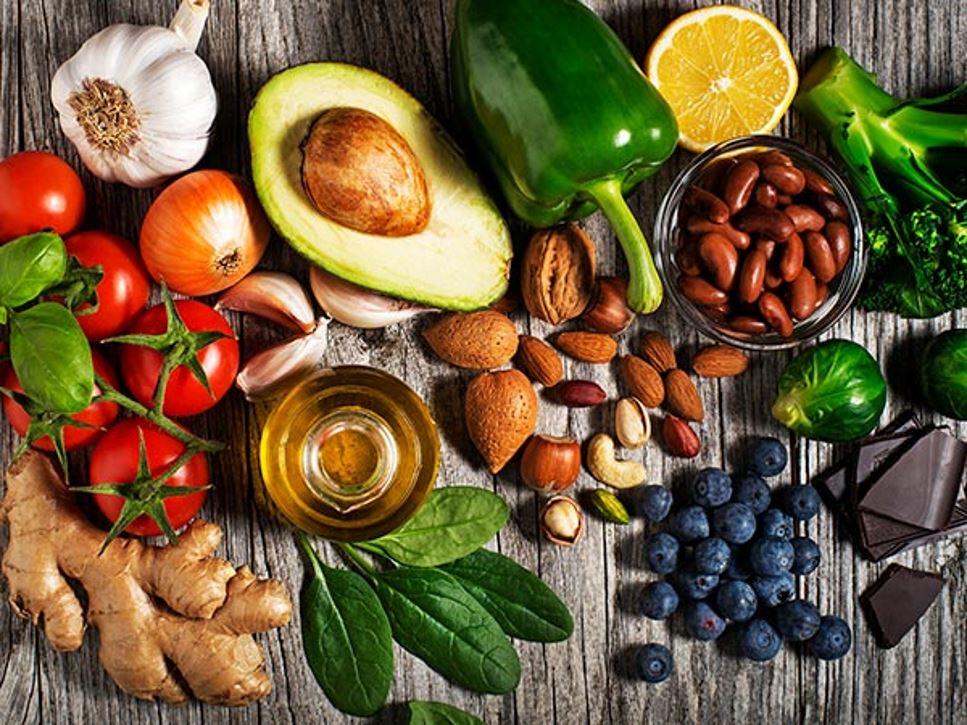Our bodies are battlegrounds against infection and diseases. Environmental exposures, such as smoking, pollution and ultra-violet (UV) rays from the sun, produce substances called free radicals that attack healthy cells. When these healthy cells are weakened, they are more susceptible to cardiovascular disease and certain types of cancers. Antioxidants — such as vitamins C and E and carotenoids, which include beta-carotene, lycopene and lutein — help protect healthy cells from damage caused by free radicals.
Carotenoids
Beta-carotene, lycopene and lutein are well-known carotenoids in the fight to reduce the damage from free radicals. Foods high in carotenoids may be effective in helping to reduce the chance of developing certain cancers and may help decrease your risk of macular degeneration.
Foods high in carotenoids include red, orange, deep-yellow and some dark-green leafy vegetables; a few examples are sweet potatoes, spinach, carrots, tomatoes, Brussels sprouts, winter squash and broccoli.
Vitamin E
Research has demonstrated the broad role of vitamin E in promoting health. The main role of vitamin E is as an antioxidant. Research has looked at its possible role in helping to protect your body from cell damage that can lead to cancer, heart disease and cataracts as we age. Vitamin E also may work with other antioxidants such as vitamin C to offer protection from some chronic diseases. Vitamin E is found in vegetable oils, wheat germ, whole grains and fortified cereals, seeds, nuts and peanut butter.
Vitamin C
Perhaps the best-known antioxidant, vitamin C offers a wide variety of health benefits. These benefits include protecting your body from infection and damage to body cells, helping produce collagen (the connective tissue that holds bones and muscles together) and helping in the absorption of iron.
To take advantage of these benefits, eat foods rich in vitamin C such as citrus fruits (including oranges, grapefruits and tangerines), strawberries, sweet peppers, tomatoes, broccoli and potatoes.
Challenges to Healthful Eating
The best way to build a healthful eating plan is to eat well-balanced meals and snacks each day and to enjoy a wide variety of foods. For most adults, eating at least 1½ to 2 cups of fruits and 2½ to 3 cups of vegetables daily is a good start for healthful living. Remember: Fresh, frozen, dried and canned fruits and vegetables can all be nutritious choices! Choose frozen and canned options without added sugars or salt.
Many health authorities recommend getting antioxidants from food instead of supplements, and research has not shown antioxidant supplements to be beneficial in preventing disease. In fact, in some cases, antioxidant supplements have increased the risk of certain cancers. However, there may be circumstances that make healthful eating a challenge. Ask a registered dietitian nutritionist or your doctor whether you need a supplement. A registered dietitian nutritionist can evaluate your eating pattern and determine whether a supplement is right for you.
References
Find a Nutrition Expert
Looking for credible nutrition information and recommendations? The Academy of Nutrition and Dietetics' network of credentialed food and nutrition practitioners are ready to help!

